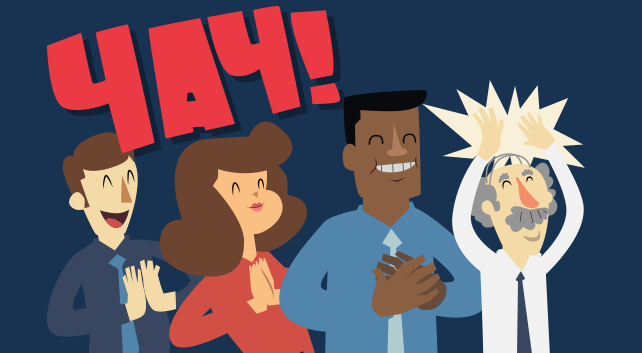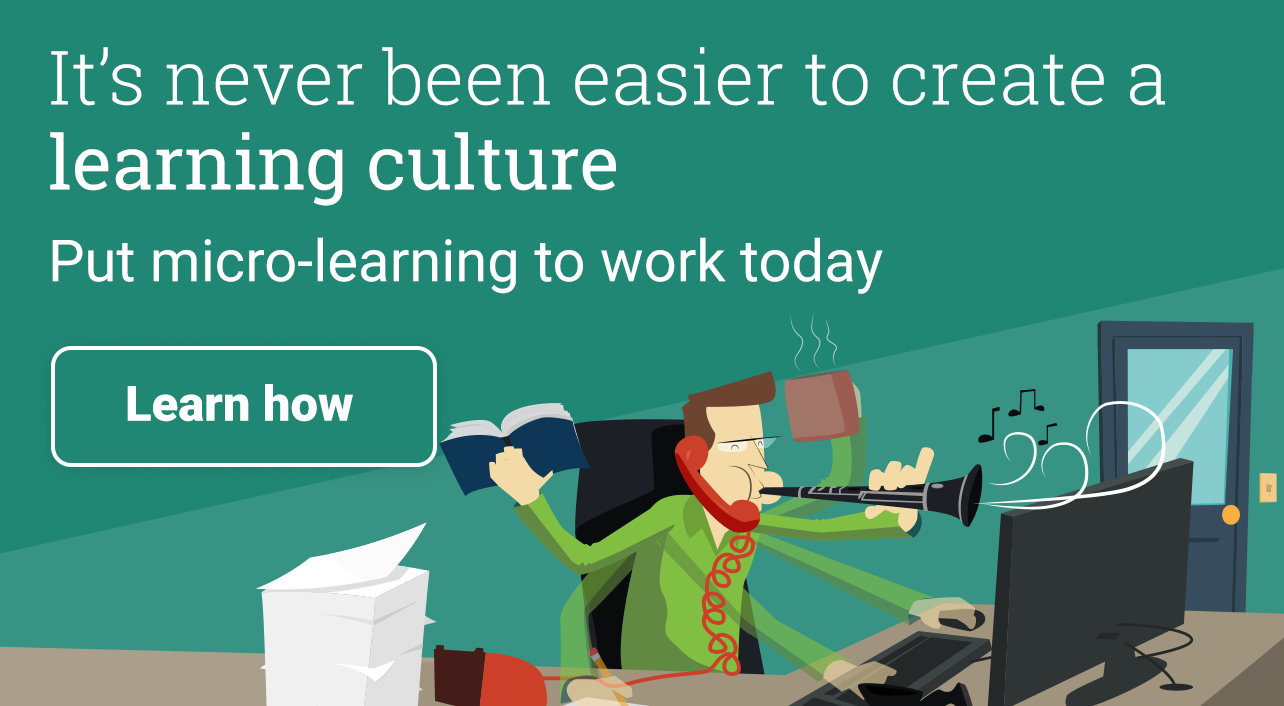- rli
- Blog post
Peer learning: It’s not just about sharing knowledge
The importance of peer learning has been touted here at Insights before. It should come as no surprise that the more knowledge sharing that occurs between learners, the more powerful your workplace learning program becomes.
But a recent study shows that knowledge sharing isn’t the only reason peer learning is successful. The social dynamics between coworkers also play a significant role.
The research
Conducted in Germany, the study amassed data from millions of workers in 330 professions across a 15-year period.
They found that the performance of a given employee’s colleagues affected that employee’s individual performance as well as their salary. They found, for example, that increasing the performance of an individual’s coworkers by 10% would be responsible for a boost in the worker’s performance and lead to an average salary increase of 1%.
The researchers stated that knowledge sharing certainly played a role in the improved performance. But there was another big factor: social pressure. When an employee is around other high performers, they feel the pressure to keep up with their colleagues, which leads to an environment where coworkers themselves raise the bar on what is expected.
To prove that social pressure played this role, they looked at data when a top performer left a team. If it was all about knowledge sharing, the remaining team members’ performance should stay on track.
But what they found was that many employees’ job performance dipped, suggesting that when top performers leave, their positive impact leaves too. With the top performer not around to raise the bar, the team falls back to their old habits and their lesser motivation to excel.
Application
The study analyzed job performance data, not workplace learning outcomes. But the takeaways are clearly applicable to creating a successful peer-learning environment. Here are a few recommendations based on the research.
Top performers help training succeed. During group learning sessions, your top performers are a vital resource. They have valuable knowledge and experience that they can share with peers to help the entire group improve. But the research suggests they also have less obvious effect on the group. Their presence and their successes create a social pressure that pushes others out of their comfort zone and motivates them to improve.
Workplace learning is the ideal time for people to feel ready to stretch themselves and experiment with new approaches to problems. With your top performers in the group learning session, they’ll provide that healthy pressure as well as advice on how to achieve the learning goals.
Ask top performers how they do it. Don’t leave peer learning to chance. When conducting group learning sessions, ask learners who’ve had success with the topic at hand specifically how they do it. What techniques do they use? How do they prepare? What do they do when they hit a roadblock?
Harnessing the experience and advice of a successful team member will resonate with your learners and make your job as a learning professional or manager easier.
Consider pairing your struggling learners with your all-stars. Consider setting aside time where your top performer can mentor an employee who is struggling with learning a new skill. While mentorship from a manager or leader is valuable, this peer-to-peer learning experience can provide benefits that other learning techniques cannot.
Source
Cornelissen, T., et al. (2017). Peer effects in the workplace. American Economic Review, 107(2), 425-56.

Get a demo of all our training features
Connect with an expert for a one-on-one demonstration of how BTS Total Access can help develop your team.





1 Comment
Thanks for sharing! This is a must read, Stephen! I agree, learn from the successful examples from the top performers, they’ll be happy to share their great experience for sure. Great article, cheers!
Brooke Harper
http://www.tenfold.com